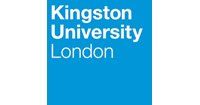
Simplification of Work Processes and Procedures
Course ID: 2509154501290EGI
Course Dates : 15/09/25 Course Duration : 5 Studying Day/s Course Location: Istanbul, Turkey
Language: Bilingual
Course Category: Professional and CPD Training Programs
Course Subcategories: Project Management and Quality Assurance
Course Certified By: * Projacs Academy
* Professional Training and CPD Programs
Certification Will Be Issued From :
KSA
Course Fees: £3,424.06
Vat Not Included in the price. VAT may vary depending on the country where the course or workshop is held.
Click to Pay
Date has passed please contact us Sales@e-s-hub.com
Course Information
Introduction
The modern workplace is characterized by an intricate web of processes, procedures, and systems designed to ensure efficiency, compliance, and productivity. However, as organizations grow and adapt to evolving demands, these systems often become convoluted, leading to inefficiencies, redundancies, and frustration among employees. The simplification of work processes and procedures has emerged as a critical discipline aimed at streamlining operations while maintaining or enhancing outcomes. This course delves into the methodologies, tools, and frameworks that enable organizations to achieve clarity, reduce complexity, and foster a culture of continuous improvement.
A significant challenge in organizational management lies in balancing the need for structure with the imperative for agility. Overly complex procedures can stifle innovation, delay decision-making, and create barriers to employee engagement. Conversely, overly simplistic approaches may fail to address regulatory requirements or operational nuances. Striking the right balance requires a deep understanding of process design, stakeholder needs, and the strategic goals of the organization. This course equips participants with the skills to identify inefficiencies, eliminate unnecessary steps, and implement streamlined workflows that align with broader business objectives.
The benefits of simplifying work processes extend beyond operational efficiency. By reducing complexity, organizations can enhance employee satisfaction, improve customer experiences, and achieve cost savings. Employees who are freed from navigating cumbersome procedures can focus on value-added tasks, fostering a more innovative and motivated workforce. Similarly, customers benefit from faster response times and more consistent service delivery. These advantages underscore the importance of adopting a systematic approach to process simplification, one that integrates human-centered design principles with data-driven insights.
Despite its clear benefits, the simplification of work processes is not without its challenges. Resistance to change, lack of leadership buy-in, and insufficient data to inform decisions are common obstacles. Additionally, organizations must navigate the tension between standardization and customization, ensuring that simplified processes remain adaptable to unique circumstances. Addressing these challenges requires a combination of technical expertise, interpersonal skills, and strategic foresight—competencies that this course aims to cultivate in participants.
This training program adopts a holistic perspective, emphasizing both theoretical foundations and practical applications. Participants will explore case studies, engage in hands-on exercises, and learn from industry experts who have successfully implemented process simplification initiatives. The curriculum is designed to provide actionable insights that participants can immediately apply to their own organizational contexts, whether they operate in manufacturing, healthcare, finance, or any other sector.
Ultimately, the goal of this course is to empower professionals to become agents of change within their organizations. By mastering the art and science of process simplification, participants will be equipped to drive transformation, enhance operational resilience, and contribute to sustainable growth. This course represents a vital step in the journey toward creating workplaces that are not only efficient but also agile, inclusive, and future-ready.
Objectives
By attending this course, participants will be able to:
Identify inefficiencies and bottlenecks within existing work processes and procedures.
Apply proven methodologies such as Lean, Six Sigma, and Business Process Mapping to streamline operations.
Develop and implement simplified workflows that align with organizational goals and regulatory requirements.
Utilize data analytics and performance metrics to evaluate the effectiveness of process improvements.
Foster a culture of continuous improvement by engaging stakeholders and managing resistance to change.
Design user-friendly documentation and training materials to support the adoption of new processes.
Integrate technology solutions to automate repetitive tasks and enhance process efficiency.
Measure the financial and operational impact of process simplification initiatives.
Who Should Attend?
This course is ideal for:
Managers and team leaders responsible for overseeing operational processes.
Process improvement specialists and quality assurance professionals.
Project managers seeking to enhance project execution through streamlined workflows.
Human resources professionals tasked with designing and implementing procedural changes.
IT professionals involved in automating and digitizing organizational processes.
Compliance officers and risk management specialists ensuring adherence to regulatory standards.
Entrepreneurs and small business owners looking to optimize their operations for scalability.
Participants from industries such as manufacturing, healthcare, finance, education, and government will find this course particularly beneficial. It is also suitable for individuals pursuing Continuing Professional Development (CPD) credits to enhance their career prospects.
Training Method
• Pre-assessment
• Live group instruction
• Use of real-world examples, case studies and exercises
• Interactive participation and discussion
• Power point presentation, LCD and flip chart
• Group activities and tests
• Each participant receives a 7” Tablet containing a copy of the presentation, slides and handouts
• Post-assessment
Program Support
This program is supported by:
* Interactive discussions
* Role-play
* Case studies and highlight the techniques available to the participants.
Daily Agenda
The course agenda will be as follows:
• Technical Session 08.30-10.00 am
• Coffee Break 10.00-10.15 am
• Technical Session 10.15-12.15 noon
• Coffee Break 12.15-12.45 pm
• Technical Session 12.45-02.30 pm
• Course Ends 02.30 pm
Course Outlines
Foundations of Process Simplification
Understanding the principles of process simplification and their relevance to organizational success.
Identifying common causes of process inefficiency and complexity.
Overview of methodologies: Lean, Six Sigma, and Business Process Reengineering (BPR).
Conducting a process audit: Tools and techniques for mapping current workflows.
Day 2:
Analyzing and Redesigning Processes
Techniques for analyzing process data and identifying bottlenecks.
Applying root cause analysis to address underlying issues.
Principles of user-centered design in process redesign.
Creating process flowcharts and visual aids to communicate improvements.
Day 3:
Implementation Strategies and Change Management
Developing an implementation plan for process simplification initiatives.
Engaging stakeholders and building consensus for change.
Managing resistance to change through effective communication strategies.
Ensuring compliance with regulatory and industry standards during process redesign.
Day 4:
Leveraging Technology for Process Optimization
Exploring automation tools and software for process streamlining.
Integrating digital solutions to enhance workflow efficiency.
Best practices for selecting and implementing technology solutions.
Case studies of successful technology-driven process simplifications.
Day 5:
Measuring Success and Sustaining Improvements
Establishing key performance indicators (KPIs) to measure process effectiveness.
Using data analytics to monitor and evaluate process performance.
Strategies for sustaining long-term improvements and fostering a culture of innovation.
Developing a roadmap for ongoing process optimization and professional development.



















































